
Current Affairs is the most important area in all competitive exams. But the difficulty level is very high. That’s why; many aspirants get confused, how to select Current Affairs for Preparation of Competitive Examination? In this Post, Daily Current Affairs 7 June 2021, we have tried to cover each and every point and also included all important facts from National/ International news that are useful for upcoming competitive examinations such as UPSC, SSC, Railway, State Govt. etc.
Daily Current Affairs 7 June 2021
Kerala launched Knowledge Economy Mission to boost job prospects
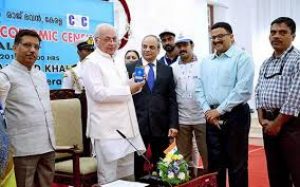
The State government of Kerala launched the Knowledge Economy Mission to bring the ongoing efforts to provide employment to the educated and support ‘knowledge workers’ under a single programme.
The APJ Abdul Kalam Technological University had set up the Kerala Digital Work Force Management System that registered over 27,000 job aspirants thus far.
Considered a sub-mission of the Kudumbasree Mission, the project entailed training its workers as well as executives of K-DISC and Additional Skill Acquisition Programme (ASAP).
Providing impetus to such efforts, the allocation for the ‘knowledge economy fund’ meant for skill promotion, technological transformation, and strengthening of higher education system had been hiked from ₹200 crore to ₹300 crore.
The ICT Academy also set up a system to evaluate the profiles of educated unemployed youth, provide them with career counselling, and enrol them in micro-training programmes.
While recruitment portal ‘Monster’ had been cooperating with the government’s Kerala Knowledge Mission for providing employment, freelance marketing network ‘Freelancer.com’ also expressed their interest.
Facebook suspends Donald Trump’s account until 2023

Facebook recently suspended former U.S. President Donald Trump until at least January 2023 and announced changes to how it will treat world leaders who break the rules on its site.
Trump has been permanently banned by Twitter (TWTR.N) and remains suspended by Alphabet’s (GOOGL.O) YouTube after the riot.
Social media companies have grappled in recent years with how to handle world leaders and politicians who violate their guidelines.
Recently the Nigerian government suspended Twitter’s activities in the country, two days after the company removed a post from President Muhammadu Buhari that threatened to punish regional secessionists.
Recently Twitter also removed the blue tick, which lets people know that an account on the social media platform is authentic, from the personal handle of vice president M Venkaiah Naidu.
NTPC signs up UN’s CEO Water Mandate to step up work on water conservation
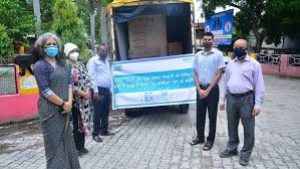
National Thermal Power Corporation Limited (NTPC Ltd) has become a signatory to the prestigious United Nations Global Compact’s CEO Water Mandate.
The CEO Water Mandate is a UN Global Compact initiative to demonstrate commitment and efforts of companies to better their water and sanitation agenda as part of long term Sustainable Development Goals.
It is designed to assist companies in the development, implementation, and disclosure of
NTPC is India’s largest power utility under Ministry of Power. Power Ministry has said that NTPC has already taken a series of measures across its plant locations on sound water management.
It has said that NTPC will further imbibe the 3 R’s (Reduce, Reuse and Recycle) for water conservation and management while carrying out its core business activity of power generation.
Supreme Court verdict on sedition case against Vinod Dua
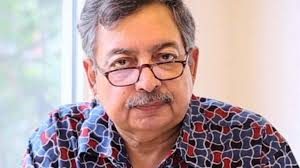
Journalist bodies welcomed the Supreme Court verdict on the sedition case against veteran journalist Vinod Dua.
The apex court had quashed the case against Dua for his alleged comments against Prime Minister Narendra Modi in his YouTube show last year, saying a 1962 verdict entitles every journalist to protection.
Section 124A of the IPC penalises sedition as punishable with either imprisonment ranging from three years to a lifetime, a fine, or both.
The Supreme Court shielded Dua from arrest earlier and the case itself was quashed recently by a two-judge bench comprising Justice U U Lalit and Justice Vineet Saran.
It held that his remarks constituted genuine criticism of the government and could not be labelled seditious. In doing so, the court also reiterated the principles in the landmark case on sedition — Kedar Nath Singh v Union of India (1962).
India’s First Indigenous Tumour Antigen SPAG9 for Cancer Treatments

Researchers at the New Delhi-based National Institute of Immunology (NII), an Autonomous Institute of Department of Biotechnology (DBT), and clinicians at Cancer Institute, Adyar, Chennai have been working together to translate new scientific discoveries into improved care for cancer patients.
India’s first indigenous tumour antigen SPAG9 was discovered by Dr Anil Suri in 1998 who is heading the Cancer Research Program at NII.
In a recent development, the SPAG9 antigen has received the trademark ASPAGNIITM. Currently, ASPAGNIITM is being used in dendritic cell (DC) based immunotherapy in cervical, ovarian cancer and will also be used in breast cancer.
Immunotherapy is a new approach that exploits the body’s inner capability to put up a fight against cancer.
With this approach, either the immune system is given a boost, or the T cells are “trained’’ to identify recalcitrant cancer cells and kill them.
The ASPAGNIITM is a true example of translational cancer research and the Atmanirbhar Bharat spirit. It will eventually be helpful to patients in India and the world. This will be a real morale boost in affordable, personalised, and indigenous products for cancer treatment.
YounTab scheme for students to encourage digital learning
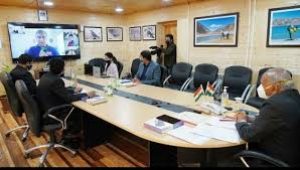
Lt Governor RK Mathur, Ladakh has launched the YounTab scheme for students in the Union Territory. He distributed tablets to the students of 9 to 12 class as part of the first phase of the YounTab Scheme.
A total of 12 thousand 300 students of 6th to 12th class from government schools will benefit from the scheme.
YounTab scheme formulated to encourage digital learning, bridge the digital divide between connected and unconnected and mitigate the Covid pandemic disruptions.
A total of 12 thousand 300 students of 6th to 12th class from government schools will benefit from the scheme.
Rules for white goods PLI scheme

The guidelines for Production Linked Incentive (PLI) scheme has been notified by the Department for Promotion of Industry and Internal Trade (DPIIT) for white goods such as air conditioners and LED lights manufacturers in India worth ₹6238 crore.
The objective of the scheme is to create complete component ecosystem in India and make India an integral part of the global supply chains.
With due consultations with industry and other stakeholders, DPIIT issued detailed Scheme Guidelines for effective operation and smooth implementation of the Scheme.
The Scheme is expected to attract global investments, enhance manufacturing and generate large scale employment opportunities.
The PLI Scheme will be implemented within the overall financial limits of Rs. 6,238 Crores over a period of 5 years during FY 2021-22 to FY 2028-29.
An entity availing benefits under any other PLI Scheme of Govt. India will not be eligible under this scheme for the same products but the entity may take benefits under other applicable schemes of Govt. of India or schemes of State governments.
The Scheme will be implemented as a pan India scheme and is not specific to any location, area or segment of population. A number of global and domestic companies, including a number of MSMEs are likely to benefit from the Scheme.
Construction of six Conventional Submarines under Project P 75 (I)

The Defence Acquisition Council (DAC) approved issue of RFP for construction of six Conventional Submarines under Project P 75 (I) under the Strategic Partnership (SP) Model.
This project envisages indigenous construction of six conventional submarines equipped with the state-of-the-art Air Independent Propulsion system at an estimated cost of Rs 43,000 crore.
This project under SP Model provides a unique long-term opportunity and planning certainty for the industry to invest and support submarine construction.
It will also infuse the latest technology and weaponry for submarines in India through strategic tie up between Indian Industry and leading foreign OEMs.
This is a landmark approval, being the first case processed under the Strategic Partnership model.
This would be one of the largest ‘Make in India’ projects and will serve to facilitate faster and more significant absorption of technology and create a tiered industrial ecosystem for submarine construction in India.
From a strategic perspective, this will help reduce current dependence on imports and gradually ensure greater self-reliance and dependability of supplies from indigenous sources.
Resolution of the Monetary Policy Committee (MPC) 2021
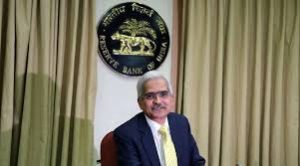
The Monetary Policy Committee (MPC) at its meeting recently decided to keep the policy repo rate under the liquidity adjustment facility (LAF) unchanged at 4.0 per cent on the basis of an assessment of the current and evolving macroeconomic situation
Consequently, the reverse repo rate under the LAF remains unchanged at 3.35 per cent and the marginal standing facility (MSF) rate and the Bank Rate at 4.25 per cent.
The MPC also decided to continue with the accommodative stance as long as necessary to revive and sustain growth on a durable basis and continue to mitigate the impact of COVID-19 on the economy, while ensuring that inflation remains within the target going forward.
These decisions are in consonance with the objective of achieving the medium-term target for consumer price index (CPI) inflation of 4 per cent within a band of +/- 2 per cent, while supporting growth.
Delta variant led to most post-vaccine infections in Delhi
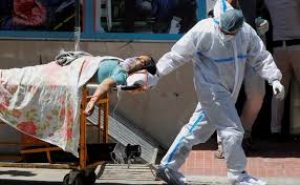
The B.1.617.2 variant of Covid-19 also known as Delta Variant according to WHO nomenclature, constituted nearly three in four breakthrough infections in Delhi, according to a research study by scientists in Delhi.
Breakthrough infections are instances of people testing positive for the virus after getting vaccinated.
The study also reports a new mutation in Delta called T478K that the scientists believe has a role to play in allowing the coronavirus to better infiltrate human cells.
However international variant Alpha, that in previous studies has been associated with a spike in cases in Delhi in February and March was absent in vaccination breakthrough-cases analysed.
Previous studies had shown that the farmer protests and religious gatherings had contributed to amplifying the Alpha variant in North India. The latter variant has now been outcompeted by the Delta.
WHO Nomenclature on the variant of SARS-CoV-2

The World Health Organization (WHO) introduced new a systematic nomenclature of various variants of the coronavirus using Greek alphabets (alpha, beta, gamma, delta etc.) to simplify public discussions and also help remove stigma from the names.
Alpha variant: B.1.1.7 variant spotted in the UK in September 2020
Beta variant: B.1.351 variant first found in South Africa in May 2020
Gamma variant: P.1 variant first spotted in Brazil in November 2020
Epsilon variant: B.1.427/ B.1.429 variant spotted in USA in March 2020
Zeta variant: P.2 variant found in Brazil in April 2020.
ETA variant: B.1.525 variant found in multiple countries in December 2020
Theta variant: P.3 variant spotted in Philippines in January 2021
IOTA variant: B.1.526 variant found in USA in November 2020
Centre releases a model Panchayat Citizens Charter
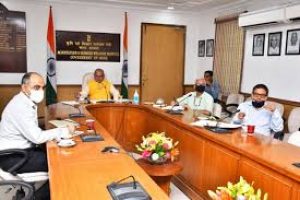
The Ministry of Panchayati Raj (MoPR) in collaboration with National Institute of Rural Development & Panchayati Raj (NIRDPR) prepared a Model Panchayat Citizens Charter/ framework for delivery of the services across the 29 sectors, aligning actions with localised Sustainable Development Goals (SDGs).
The Aim of Establishing a Citizen Charter Is to Provide Services to the People in a Time Bound Manner, Redressing Their Grievances and Improving Their Lives.
It is expected that the Panchayats will utilise this framework to draw up a Citizens Charter and adopt it through a resolution of the Gram Sabha by 15th August, 2021.
Panchayats are responsible for delivery of basic services as enshrined under article 243G of the Constitution of India, specifically in the areas of Health & Sanitation, Education, Nutrition, Drinking Water.
National Institute of Rural Development and Panchayati Raj (NIRD&PR) is an autonomous organisation under the Union Ministry of Rural Development.
It is a premier national centre of excellence in rural development and Panchayati Raj. It builds capacities of rural development functionaries, elected representatives of PRIs, bankers, NGOs and other stakeholders
CBSE to introduce Coding and Data Science curriculum
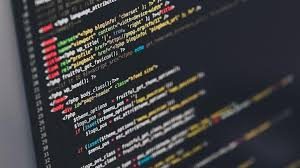
CBSE is going to introduce Coding for classes 6-8 and Data Science curriculum for classes 8-12 as new skilling subjects in the 2021-2022 academic session with the collaboration of Microsoft.
Coding and data science Curriculum are focused on building critical thinking, computational skills, problem solving skills, creativity and hands-on exposure to new technologies.
In keeping with the New Education Policy 2020, the introduction of these courses is aimed at building next generation skills in students.
Microsoft has designed supplementary handbooks in both coding and data science, aligned with NCERT patterns and structures and covered real-life examples aimed at building exposure to the ethical dimensions exposure to Microsoft MakeCode.
Microsoft MakeCode is an open-source platform that will enable students to learn better in a gamified manner across all disciplines including mathematics, languages, and social sciences while it builds the foundation for AI based applications of data science.
UNEP praises a sand art made by Sudarsan Pattnaik
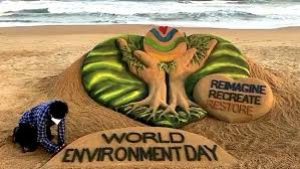
The United Nations Environment Programme (UNEP) has praised renowned artist Sudarsan Pattnaik’s a sand art on Odisha’s Puri beach to celebrate World Environment Day.
Pattnaik created an 8 foot by 13 foot sculpture with seven tonnes of sand, giving a message that people can lead a healthy life in a safe environment.
The United Nations Environment Programme (UNEP) is responsible for coordinating responses to environmental issues within the United Nations system.
UNEP was established by Maurice Strong, its first director, after the United Nations Conference on the Human Environment in Stockholm in June 1972.
Its mandate is to provide leadership, deliver science and develop solutions on a wide range of issues, including climate change, the management of marine and terrestrial ecosystems, and green economic development.
Education Minister approves Performance Grading Index 2019-20 for States, UTs
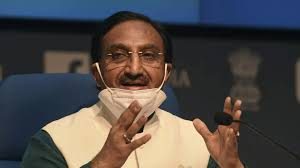
Union Education Minister recently approved the Performance Grading Index (PGI) 2019-20 for States and Union Territories, which was introduced with a set of 70 parameters to bring about change in school education.
The Index for States and Union Territories was first published in 2019 with reference to the year 2017-18. The PGI: States/UTs for 2019-20 is the third publication in this series.
Punjab, Chandigarh, Tamil Nadu, Andaman & Nicobar Islands and Kerala occupy the highest grade (Grade A++) for 2019-20.
Andaman and Nicobar Islands, Arunachal Pradesh, Manipur, Puducherry, Punjab and Tamil Nadu have improved overall PGI score by 10 per cent.
Thirteen states and UTs showed improvement by 10 per cent or more in the PGI domain: Infrastructure and Facilities. Andaman & Nicobar Islands and Odisha have shown improvement by 20 per cent or more.
Arunachal Pradesh, Manipur and Odisha have shown more than 10 per cent improvement in the PGI domain: Equity.





